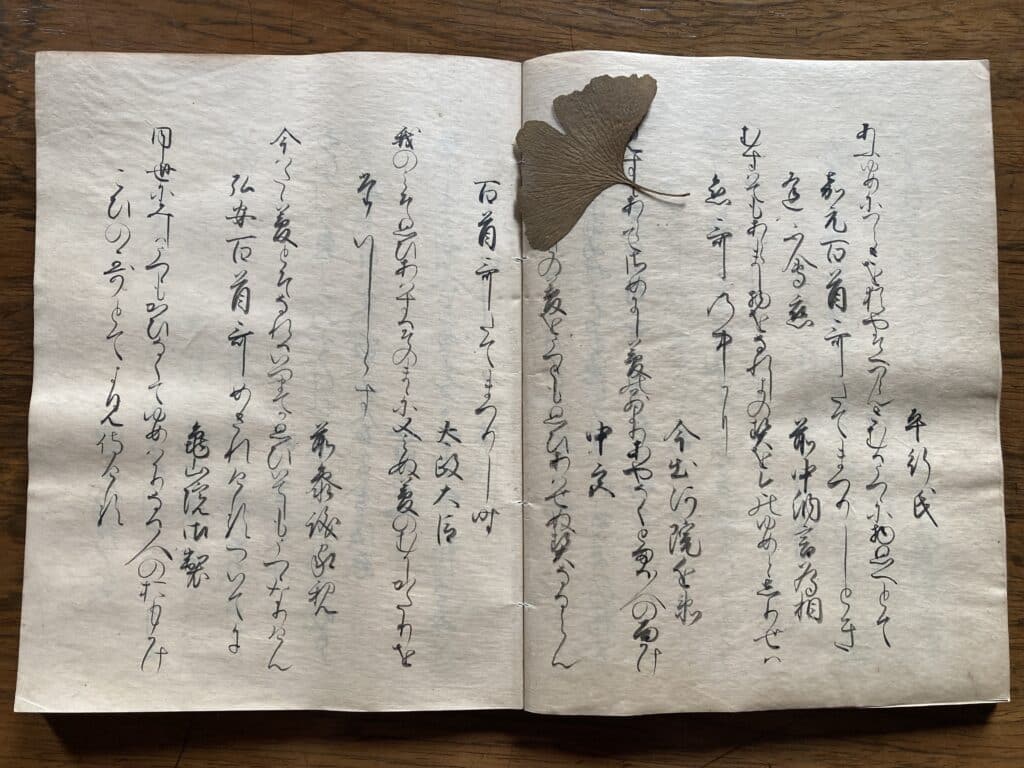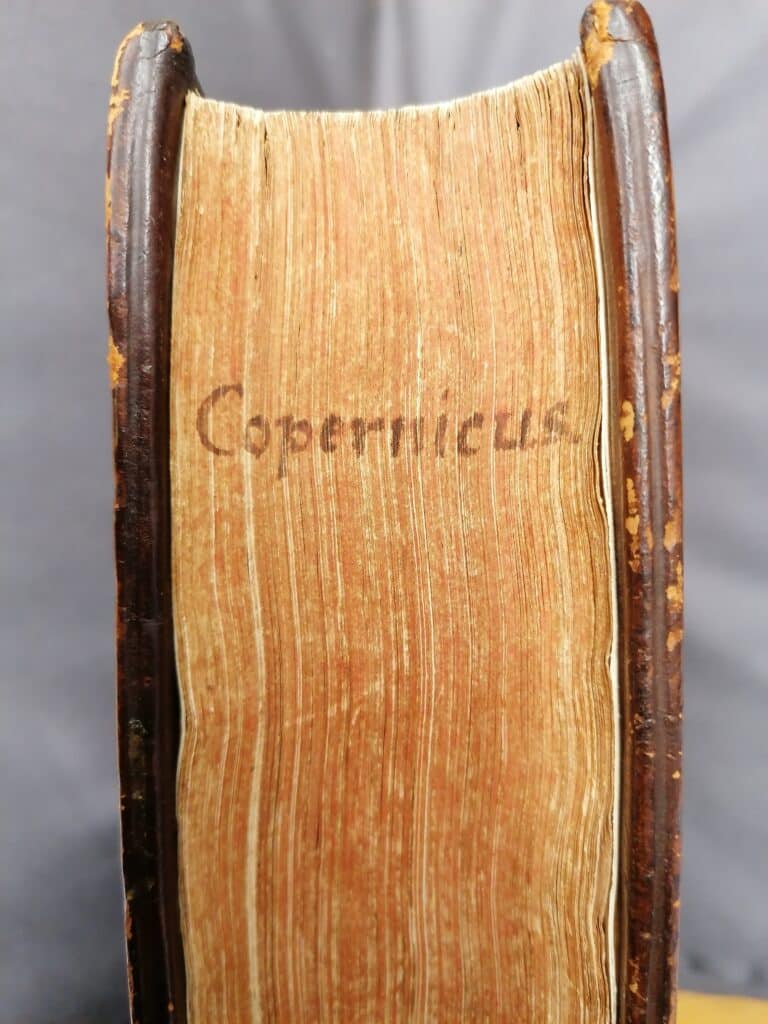Many famous and notable boys have passed through the halls of Eton College. One such is John Barton (1929-2018), who attended Eton between 1942 and 1947. Barton went on to dedicate his life to the Royal Shakespeare Company (RSC), teaching and directing plays from 1960 to 2018. He is regarded as one of the most influential directors of Shakespeare of his time.
There are many records relating to Barton from his time at Eton. One of these is a series of letters he wrote to his parents between 1942 – 1944, recently donated to the College Archives [ED 534]. These letters focus on Barton’s life at Eton, his classes, trials, cricket matches, as well as the effects of World War II at Eton. Together with other records from the Archives, these letters demonstrate his passion for literature, performing and Shakespeare himself.
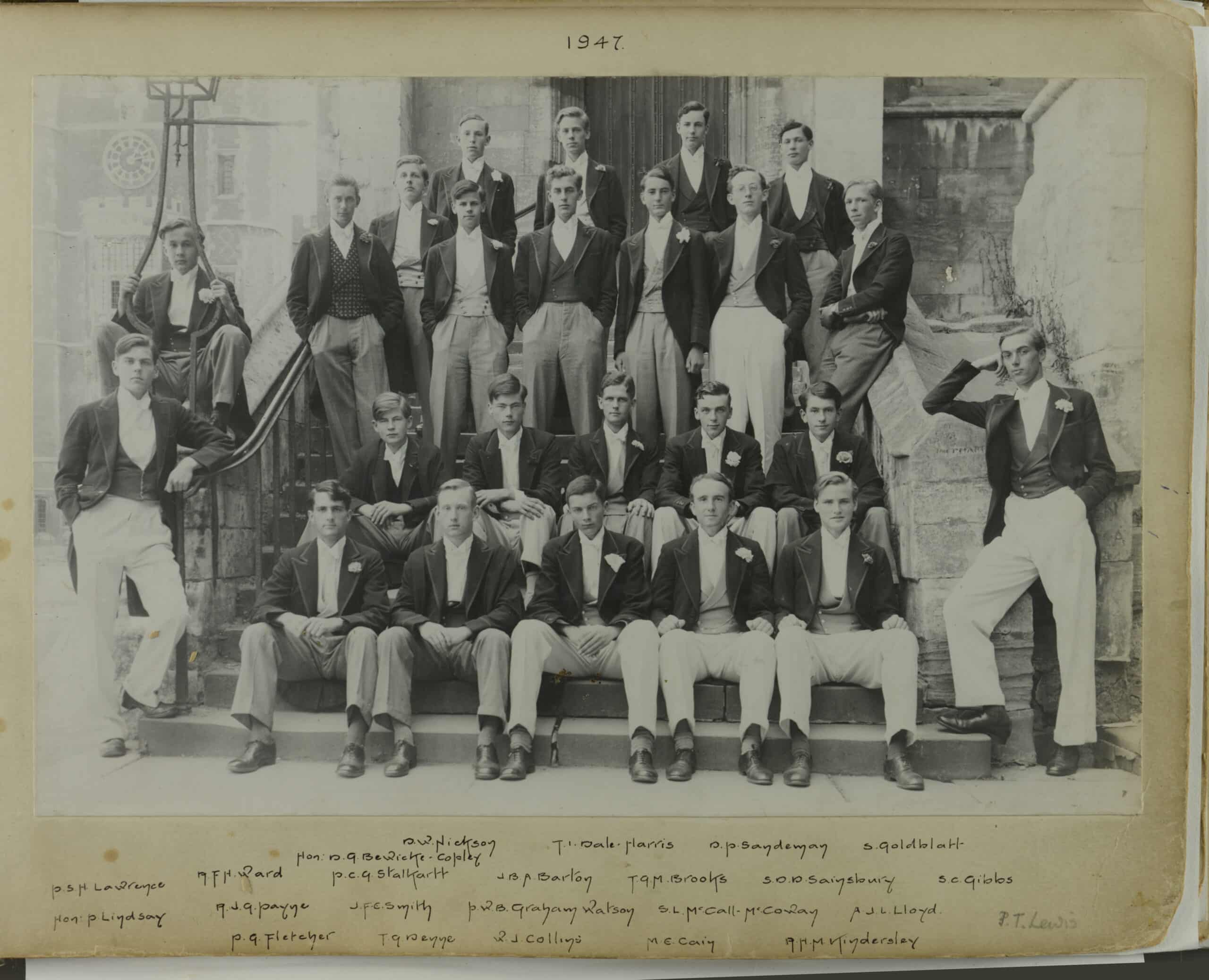
The Eton Society, 1947
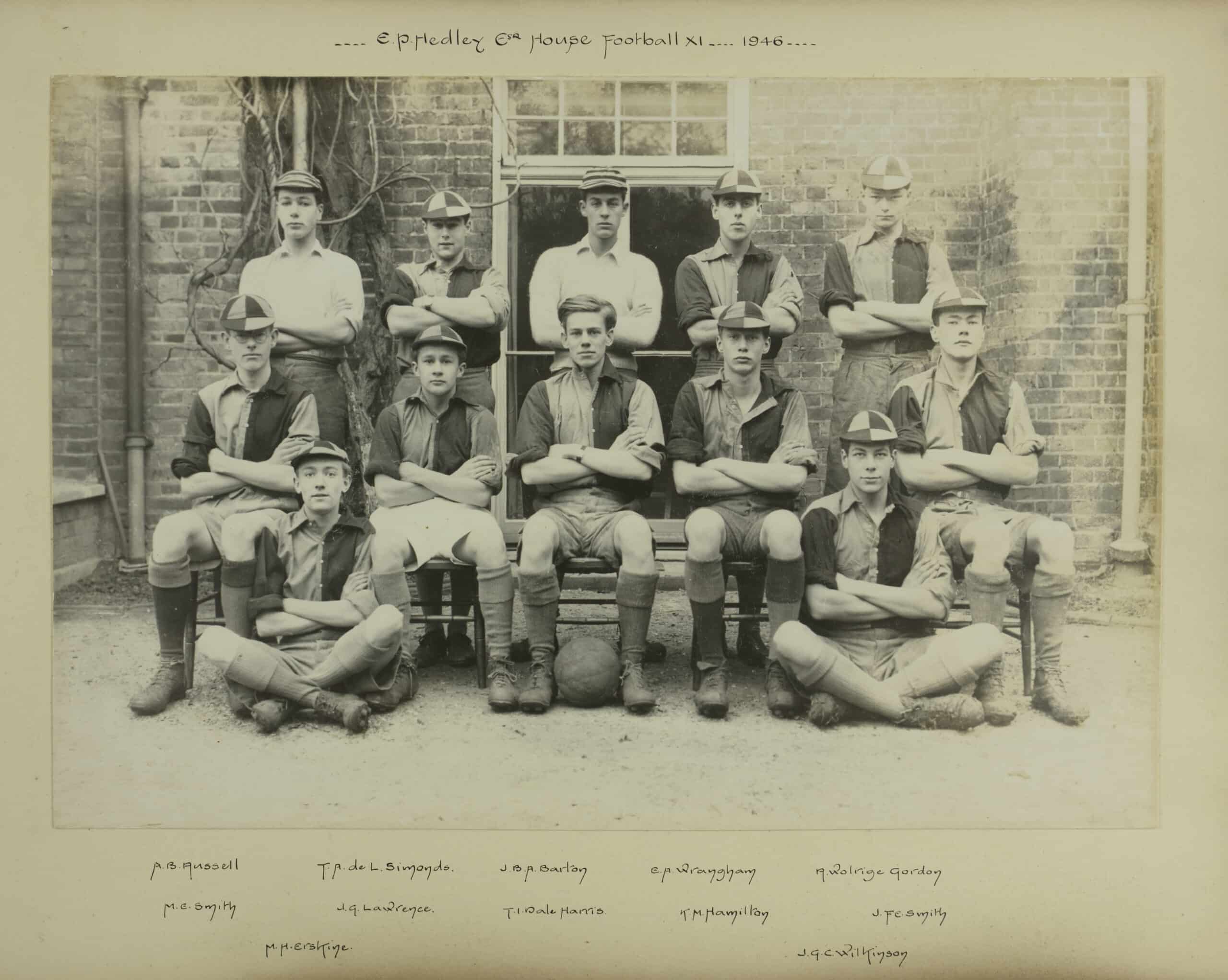
E.P. Hedley’s House Football, 1946
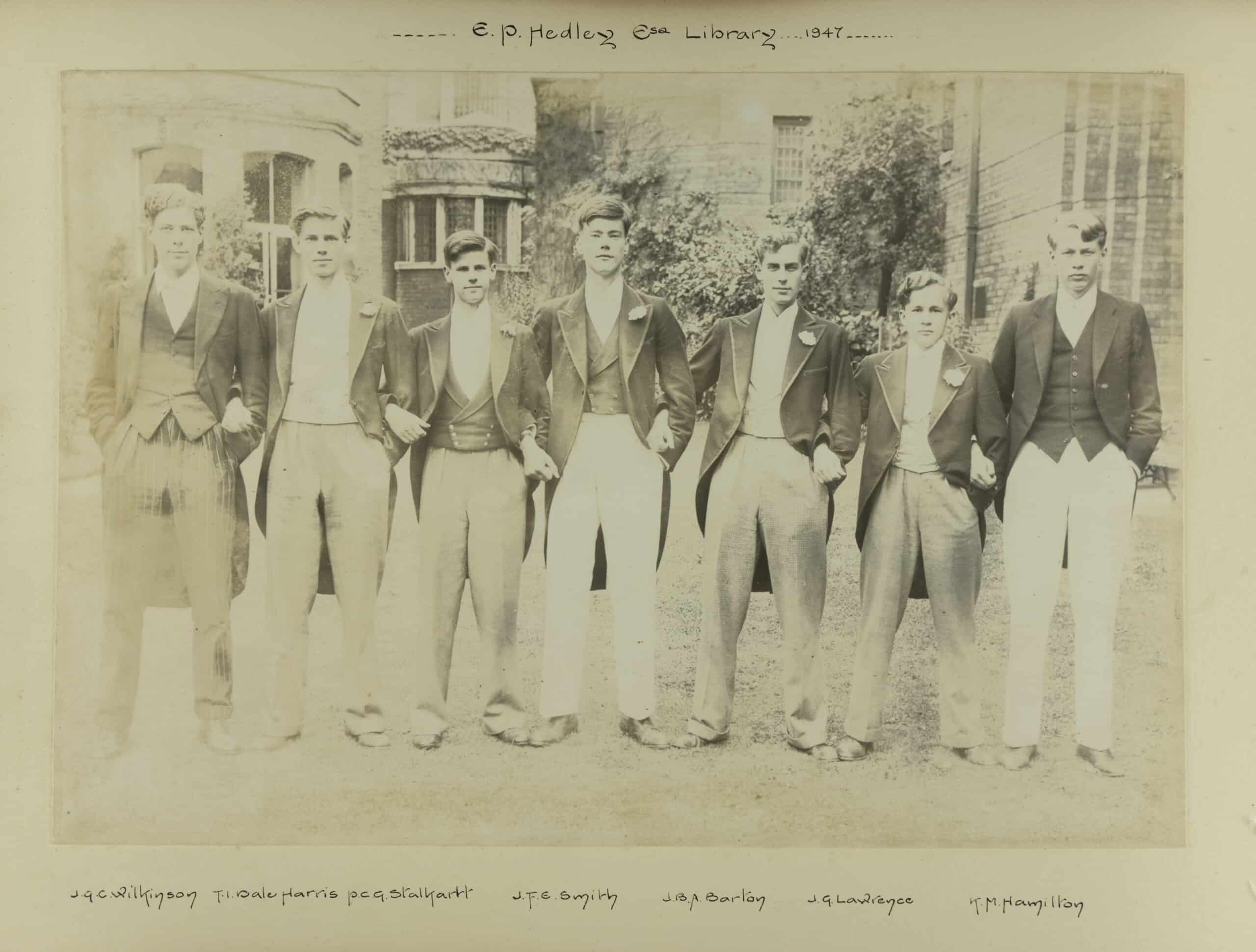
E.P. Hedley’s Library, 1947
Barton proved his literary abilities whilst at Eton through his co-editing of the Chronicle, the school magazine, between February and May of his final year and winning the Richards English Essay Prize in 1946. Barton had the skill and enthusiasm for literature which he put into his work at the RSC. RSC Artistic Director Gregory Doran wrote, “John’s greatest influence on the company… was his passion for the verse, and his ability to uncover the clues that Shakespeare wrote into the text.”
Barton was a strong orator and worked on his public speaking across many departments while at Eton. He was a member of the Eton Society, known as Pop, in which he would have debated various topics with other members. He also took part in Speeches, delivering —’A Counterblast to Tobacco’ by James I. The Chronicle notes how Barton gave his speech a theatrical twist, “throwing all his body in to help his meaning.” He also performed in many plays while at Eton, some Shakespeare.
From Barton’s extensive career with the RSC, his admiration for the playwright was unrivalled, and this adoration began during his years at Eton. In one letter from Barton to his parents dated 1943, he wrote how he had “been very busy leaning History and Shakespeare which I knew NOTHING about till two days or so ago” [ED 534/8]. Then by 1947 he was a member of the Shakespeare Society.
The group would gather to read texts and put on an annual performance of scenes from chosen plays. Barton took part in the 1947 performance, playing Henry Hotspur in Act III, Scene I of The First Part of King Henry the Fourth.
Later in that same year, Barton went on to direct the first play to be performed since World War II. He directed King Henry IV part one in full. This could be considered the foundation of his lifelong career at the RSC. The play received a remarkable review in The Chronicle in November 1947, being named “the best [play] we can remember”.
Laura Martin, Archives Assistant


